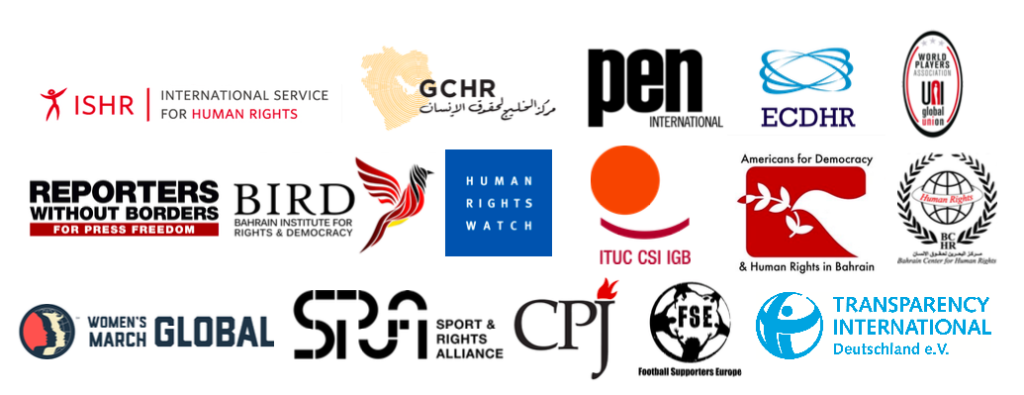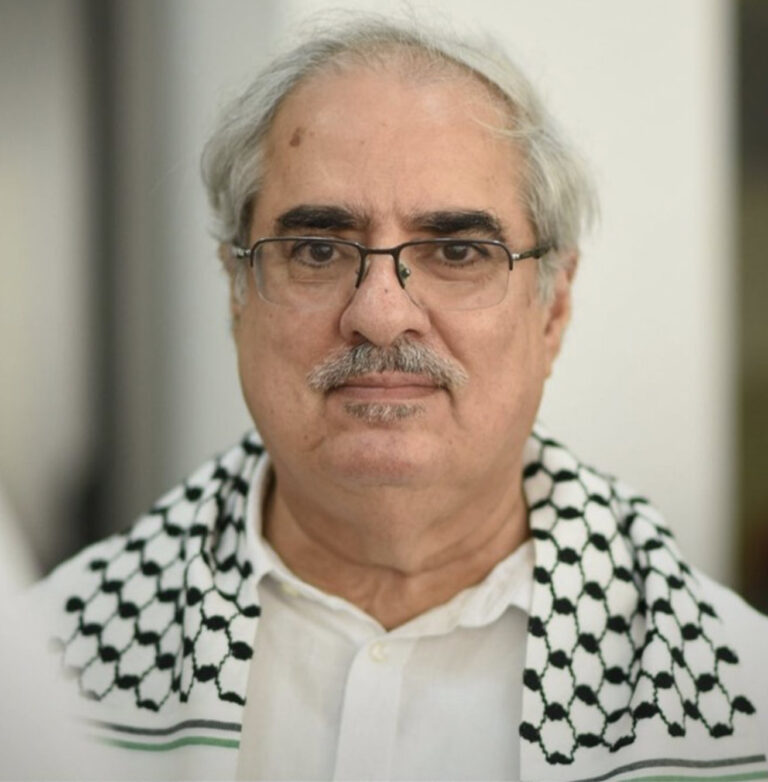London, 27 March 2019— Ahead of the 2019 Grand Prix on Sunday, leading global NGOs and trade unions including members of the Sport and Rights Alliance sent a joint letter to the President of the Federation Internationale de l’Automobile (FIA), Jean Todt, concerning human rights abuses perpetrated by the Bahraini government related to the race.
The letter urges Mr Todt to call for the immediate release of those imprisoned for criticising Formula 1 in light of the annual spike in human rights violations in Bahrain around the time of the race and the continued detentions of activists from past races. The letter emphasises Formula 1’s failure to abide by their own Statement of Commitment to Respect for Human Rights, which commits the company to “respecting internationally recognised human rights in its operations globally.”
The groups expressed particular concern for the case of Najah Yusuf, who was sentenced to three years in prison a week after criticising the 2017 Grand Prix on Facebook. Yusuf says she was tortured and sexually assaulted by Bahrain’s National Security Agency over the course of five days of interrogation in late April 2017, and forced her to sign a confession that they would not allow her to read.
The NGOs also raised other cases related to Formula One, including Bahraini photojournalist Ahmed Humaidan, whose health has seriously deteriorated since being imprisoned for inciting against “public order” in the run-up to the race in 2014.
“We have escalated our calls for Najah and Humaidan’s release with FIA leaders and hope this letter will be a wake-up call for Formula 1 which compels them to take the arrests of journalists and activists around their race seriously,” said Sayed Ahmed Alwadaei, Director of Advocacy at the Bahrain Institute for Rights and Democracy (BIRD).
The letter urges Mr Todt to publicly call for Ms Yusuf and Mr Humaidan’s “immediate and unconditional release”. The NGOs also encourage the FIA and Formula 1 to send a “high-level delegation” to visit both prisoners in Isa Town Prison and Jau Prison, respectively, pointing to similar action by FIFA in the case of unjustly jailed Bahraini refugee footballer Hakeem al-Araibi earlier this year.
The Bahrain Grand Prix plays a central role in “sport-washing” the Bahraini government’s human rights abuses and boosting their international prestige, the letter adds.
Since 2011 the race has become a focal point for protests calling for political reform, as well as a pretext for government crackdowns on freedom of speech and assembly. The letter condemns the “clear pattern of repression and detention of journalists” that has accompanied the race since its inauguration in 2004.
“Formula 1 should not continue to shirk responsibility for these cases by accepting the hollow assurances of the Bahraini government. At the very least, we expect FIA and F1 leaders to visit them in prison to send the signal to Bahraini leaders such arrests should not be part of the Grand Prix,” Mr Alwadaei further said.
Additionally, Gigi Alford, Coordinator for the Sport & Rights Alliance, a global coalition of NGOs and trade unions that signed on to the letter, said: “Using the Grand Prix to cover up repression has been cost-free for Bahrain for too long, and we’re asking the FIA and F1 to no longer be part of that. It’s not only in their best interest to rid their marquee race of links to human rights abuses, it is their responsibility to do so under international standards, as they already know. This letter makes clear to the FIA, F1, and teams that to run a legitimate business, their operations and business partners, such as the government of Bahrain, must not cause or contribute to human rights harms.”




